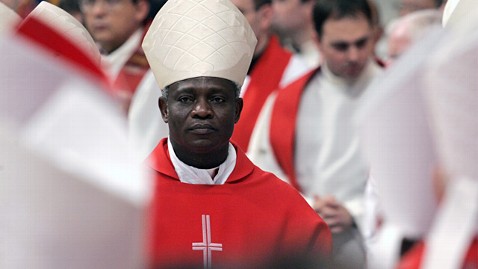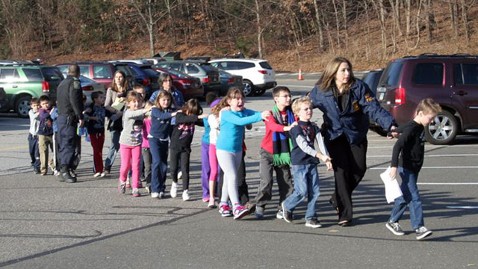VATICAN CITY (Reuters) - Pope Benedict shocked the world on Monday by saying he no longer had the mental and physical strength to cope with his ministry, in an announcement that left his aides "incredulous" and will make him the first pontiff to step down since the Middle Ages.
The German-born Pope, 85, hailed as a hero by conservative Roman Catholics and viewed with suspicion by liberals, told cardinals in Latin that his strength had deteriorated recently. He will step down on February 28 and the Vatican expects a new Pope to be chosen by the end of March.
Vatican spokesman Father Federico Lombardi said the Pope had not decided to resign because of "difficulties in the papacy" and the move had been a surprise, indicating that even his inner circle was unaware that he was about to quit.
The Pope does not fear schism in the Church after his resignation, the spokesman said.
The Pope's leadership of 1.2 billion Catholics has been beset by child sexual abuse crises that tarnished the Church, one address in which he upset Muslims and a scandal over the leaking of his private papers by his personal butler.
The pope told the cardinals that in order to govern "...both strength of mind and body are necessary, strength which in the last few months, has deteriorated in me to the extent that I have had to recognize my incapacity to adequately fulfill the ministry entrusted to me.
"For this reason, and well aware of the seriousness of this act, with full freedom I declare that I renounce the ministry of Bishop of Rome, Successor of Saint Peter."
He also referred to "today's world, subject to so many rapid changes and shaken by questions of deep relevance for the life of faith."
The last Pope to resign willingly was Celestine V in 1294 after reigning for only five months, his resignation was known as "the great refusal" and was condemned by the poet Dante in the "Divine Comedy". Gregory XII reluctantly abdicated in 1415 to end a dispute with a rival claimant to the papacy.
"NO OUTSIDE PRESSURE," JUST ADVANCING AGE
Before he was elected Pope, the former Cardinal Joseph Ratzinger was known by such critical epithets as "God's rottweiler" because of his stern stand on theological issues.
But after several years into his new job Benedict showed that he not only did not bite but barely even barked.
In recent months, the pope has looked increasingly frail in public, sometimes being helped to walk by those around him.
Lombardi ruled out depression or uncertainty as being behind the resignation, saying the move was not due to any specific illness, just advancing age.
The Pope had shown "great courage, determination" aware of the "great problems the church faces today", he said, adding the timing may have reflected the Pope's desire to avoid the exhausting rush of Easter engagements.
There was no outside pressure and Benedict took his "personal decision" in the last few months, he added.
Israel's Chief Rabbi praised Benedict's inter-faith outreach and wished him good health. The Archbishop of Canterbury, head of the Anglican Church, said he had learned of the Pope's decision with a heavy heart but complete understanding.
German Chancellor Angela Merkel said the Pope's decision must be respected if he feels he is too weak to carry out his duties. British Prime Minister David Cameron said: "He will be missed as a spiritual leader to millions."
The pontiff would step down from 2 p.m. ET on February 28, leaving the office vacant until a successor was chosen to Benedict who succeeded John Paul, one of history's most popular pontiffs, the spokesman said.
Elected to the papacy on April 19, 2005 when he was 78 - 20 years older than John Paul was when he was elected - Benedict ruled over a slower-paced, more cerebral and less impulsive Vatican.
MEEK DEMEANOUR, STEELY INTELLECT
But while conservatives cheered him for trying to reaffirm traditional Catholic identity, his critics accused him of turning back the clock on reforms by nearly half a century and hurting dialogue with Muslims, Jews and other Christians.
Under the German's meek demeanor lay a steely intellect ready to dissect theological works for their dogmatic purity and debate fiercely against dissenters.
After appearing uncomfortable in the limelight at the start, he began feeling at home with his new job and showed that he intended to be Pope in his way.
Despite great reverence for his charismatic, globe-trotting predecessor -- whom he put on the fast track to sainthood and whom he beatified in 2011 -- aides said he was determined not to change his quiet manner to imitate John Paul's style.
A quiet, professorial type who relaxed by playing the piano, he managed to show the world the gentle side of the man who was the Vatican's chief doctrinal enforcer for nearly a quarter of a century.
The first German pope for some 1,000 years and the second non-Italian in a row, he traveled regularly, making about four foreign trips a year, but never managed to draw the oceanic crowds of his predecessor.
The child abuse scandals hounded most of his papacy. He ordered an official inquiry into abuse in Ireland, which led to the resignation of several bishops.
STRING OF SCANDALS
Scandal from a source much closer to home hit in 2012 when the pontiff's butler, responsible for dressing him and bringing him meals, was found to be the source of leaked documents alleging corruption in the Vatican's business dealings, causing an international furor.
He confronted his own country's past when he visited the Nazi death camp at Auschwitz.
Calling himself "a son of Germany", he prayed and asked why God was silent when 1.5 million victims, most of them Jews, died there during World War Two.
Ratzinger served in the Hitler Youth during World War Two when membership was compulsory. He was never a member of the Nazi party and his family opposed Adolf Hitler's regime.
But his trip to Germany also prompted the first major crisis of his pontificate. In a university lecture he quoted a 14th century Byzantine emperor as saying Islam had only brought evil to the world and that it was spread by the sword.
After protests that included attacks on churches in the Middle East and the killing of a nun in Somalia, the Pope later said he regretted any misunderstanding the speech caused.
In a move that was widely seen as conciliatory, in late 2006 he made a historic trip to predominantly Muslim Turkey and prayed in Istanbul's Blue Mosque with a Turkish Mufti.
But months later, former Iranian President Mohammad Khatami met the Pope and said wounds between Christians and Muslims were still "very deep" as a result of the Regensburg speech.
(Writing by Peter Millership; editing by Janet McBride and Ralph Boulton)











